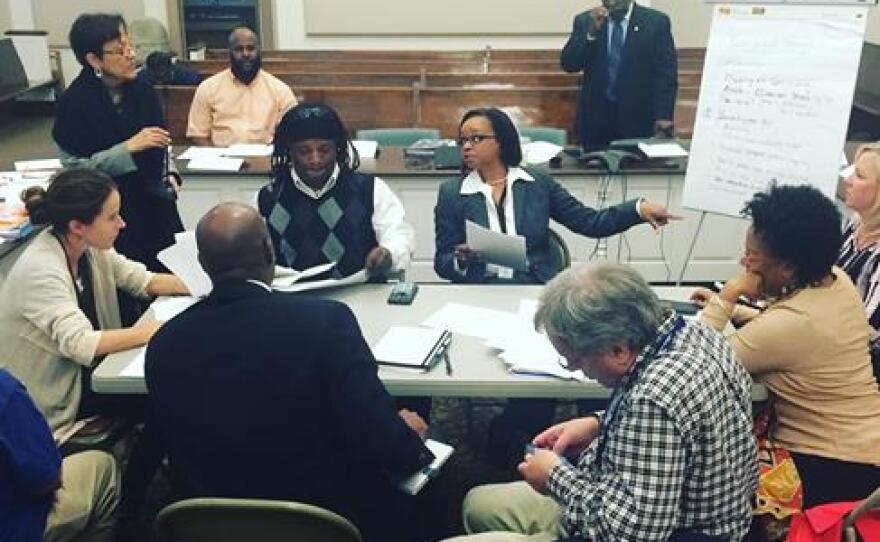The Advisory Council working to implement a CDC report’s recommendations for countering gun violence in Wilmington met again Wednesday, breaking into smaller groups to start tackling different goals.
While one group focused on targeted programs for kids specifically identified as at-risk for gun violence, another examined universal programs available for all kids ages 4-18 living within designated high-risk areas of the city.
That second group came up with a list of over 30 programs know to exist or previously exist in Wilmington - including Too Good for Violence.
“It comes with an evaluation component so that individuals using the program can pre-test the kids to look at their behaviors, their attitudes about themselves, their attitudes about others who are different, give them the program and then test them again,” said Marlene Saunders, Executive Director of the Delaware Chapter of the National Association of Social Workers.
Saunders, along with several others, led the universal work group. The group says it now needs to assess the availability and access of the programs identified, and what happened to ones that disappeared.
Another group focused on specific at risk kids and found gaps in services, due to cultural competency, shortages and burnout. Those gaps cause shortfalls when it comes to care.
Dr. Rosa Colon-Kolacko is the Cultural and Diversity Strategist for the CDC council. She says the council is also planning a communications campaign involving youth.
“They need to know that there is hope," Colon-Kolachko said. "So we need to create a campaign that there is hope to prevent violence through prevention. But it’s not for us to package the message: we want them to help us package the message.”
The committee has yet to come up with methods to collect data from any of these programs, or develop a system to find ones outside Wilmington to consider.
The Council’s co-chair Dr. Henry Smith also expressed concern about programs that receive funding, but haven’t proven they’re effective. And Saunders echoed that concern.
The council also plans to look at which programs are underfunded or over-funded and under or over utilized, and develop an infrastructure to do so.
“That’s getting all of the MOUs signed, getting the data systems hooked up, doing the kind of inventory that we’re now proposing to collect - to identify best practice kinds of services,” Smith said.
Some members want to find places the group can take action now, and will meet over the next few weeks look at what can be accomplished this summer.
Ashley Biden is one, and stressed the importance of sharing honestly and openly about the effectiveness of programs.
"I know that we as a group represent different agencies," Biden said. "But this is a safe space to talk about the things that nobody is talking about. The reason we're dealing with the issues we're dealing with is because we're constantly not addressing the elephants in the room. If we can't do it in this space, how are we going to change or expect anybody else to do it?"
There was also a push to advocate for increased funding of evidence-based initiatives. Before its next meeting in early June the group plans to communicate with the General Assembly and Wilmington City Council among others its need for funding of best practices.
Dr. Henry Smith mentioned a $1.5 million in Wilmington city public safety funding that could be up for grabs for the council.








